Europe lockdown: New coronavirus rules country by country
Measures to deal with new coronavirus outbreaks are being imposed across Europe.Many involve the reintroduction of restrictions which had been eased following the initial lockdown.
France: Large gatherings banned in some regions
France's lockdown was imposed on 17 March, but restrictions began to ease on 11 May.
However, following fresh outbreaks in July, the government made face masks compulsory in enclosed public spaces.
It said it would impose local lockdowns rather than another national one, if there was a second wave of infections.
Face masks must be worn in public in Paris and surrounding areas by anyone aged 11 and over. Hundreds of other municipalities across France have also introduced this rule, including in Toulouse, Nice, Lille and Lyon and some beach resorts.
From 1 September, masks will have to be worn in most workplaces. The rule applies in offices and factories wherever people are sharing space.
Spain: Military called in to help
On 4 May, Spain set out its plan to start easing one of the strictest lockdowns in Europe.
But some regions saw a spike in cases in July, and the prime minister has offered 2,000 military personnel to help with contact tracing.
Catalonia has now introduced a ban on social gatherings of more than 10 people except for work meetings or travelling, while Murcia has introduced a limit of six.
Madrid has seen a spike in cases, leading to compulsory face masks in public - regardless of whether social distancing is possible.
The prime minister said that the new school year must start as planned in September, after some local authorities said they might not be able to have full attendance straight away.
Germany: Compulsory airport testing
Germany began easing its lockdown in April, allowing small shops to open.
In May, shops of all sizes and schools started to reopen. Bundesliga football matches resumed, but no fans were allowed into the grounds. The ban on large gatherings has now been extended to the end of the year, so the new football season will also start behind closed doors.
A surge in cases linked to a meat-processing plant near the western town of Gütersloh triggered new local lockdowns.
Testing at airports is now compulsory for all travellers arriving from high-risk countries and a minimum fine of 50 euros (£44) has been introduced for people failing to wear face coverings in shops or on public transport.
Italy: Nightclubs and dance venues closed
Italy's strict lockdown started on 7 March and was gradually lifted two months later.
Bars, restaurants, hairdressers, museums and tourist sites all reopened with strict social distancing and the compulsory wearing of face masks.
On 3 June, Italy reopened its borders and ended regional travel restrictions.
But with infections rising again in Italy, authorities ordered closures of all dance halls and nightclubs, including outdoors ones, from 17 August.
You also now have to wear a face mask from 18:00 to 06:00 local time in all public spaces across Italy where social distancing isn't possible.
Belgium: Further easing delayed
In Belgium, shops, schools, markets, museums, zoos, hairdressers and beauty salons were gradually allowed to open from early May.
Sports events, religious services and village fetes have been allowed since 1 July, with a maximum of 200 participants or spectators indoors and 400 outside.
However, Belgium has seen a rise in new infections.
In the capital Brussels, wearing a face mask became compulsory in all public areas on 12 August amid a rise in cases. Police checks are being increased to ensure that people follow the new rules.
The city of Antwerp introduced a curfew at the end of July. In restaurants, a maximum of four people are allowed to sit at a table, although larger households are also allowed to sit together.
The government decided not to go ahead with the next phase of reopening so nightclubs remain closed and no major events, such as festivals, are allowed.
Netherlands: Face mask pilot scheme scrapped
On 1 July, the Netherlands lifted the limit for people inside or outside shops and some other venues, provided they stick to 1.5m social distancing.
Further measures to ease the lockdown were brought forward. For example, brothels - which were due to reopen in September - were allowed to start business on 1 July.
However, the rate of infection started to climb and on 6 August new measures were announced, including local closures of cafes, cinemas, museums and amusement parks for 14 days in case of an outbreak. Local authorities can impose curfews and further restrictions.
Amsterdam and Rotterdam have both scrapped pilot schemes in which face masks would be compulsory in outdoor public spaces.
On 17 August, children started to return to school in the north of the country. Extra hygiene measures have been put in place, but social distancing will apply to adults only.
Portugal: Tighter restrictions on the way
Portugal has had fewer coronavirus cases and deaths than some other south European nations.
The government reopened different sectors of the economy every 15 days - restaurants, coffee shops, museums and beaches opened in May and June.
The final phase of reopening started on 1 July.
Hotels have mainly reopened, but nightclubs remain closed.
The government has warned that stricter measures will be put in place in mid-September as pupils return to school and some workers return to their offices. Details will be announced in early-September.
Greece: Testing offered to those returning from islands
Greece recorded its first Covid-19 case on 26 February and the government swiftly imposed a lockdown.
Relaxation measures started in late April, with a particular focus on opening up the country for the summer.
However, the number of cases started rising again in July.
Since 29 July, face masks have been compulsory in supermarkets, shops, cafes, banks, government offices and hairdressers.
From 17 August, bars, clubs and restaurants in Athens and several areas across the country have had to close at midnight.
There have also been local restrictions introduced on Greek islands such as Mykonos, and free on-the-spot testing has been offered to people arriving on the mainland from those islands.
Republic of Ireland: Some relaxation of restrictions reversed
Ireland has had a stricter lockdown than the UK, with residents only allowed to exercise within 2km (1.2 miles) of their homes.
Schools have been closed since 12 March, but are reopening at the beginning of September.
While many of the restrictions have been relaxed, some of those decisions have been reversed.
Crowds attending outdoor events, including sports, are to be reduced from 200 to 15 while indoor gatherings - excluding shops, restaurants and other businesses - are to be restricted to six people.
Those aged over 70 are again being asked to stay at home as much as possible and workers are being encouraged to work from home if possible.
There have also been local lockdowns - the one in County Kildare has been extended into September.
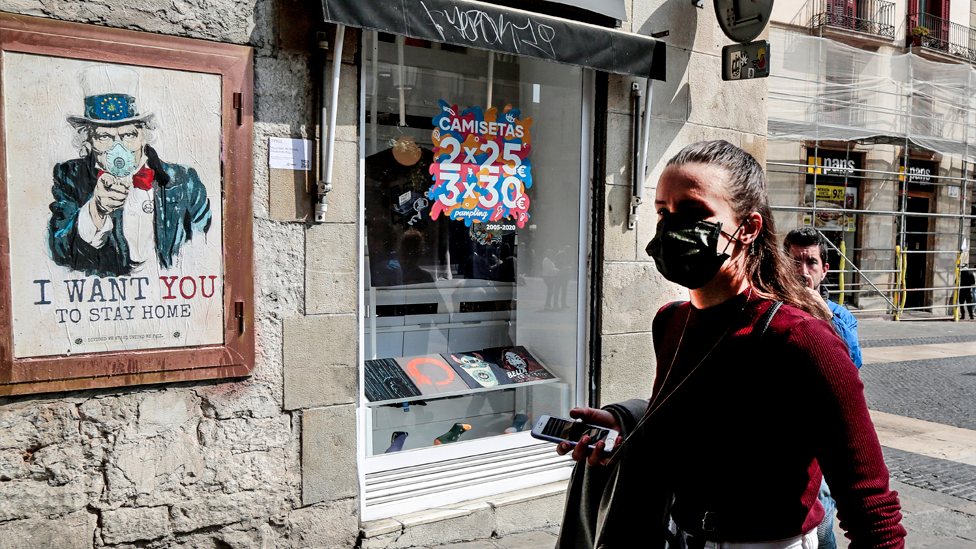
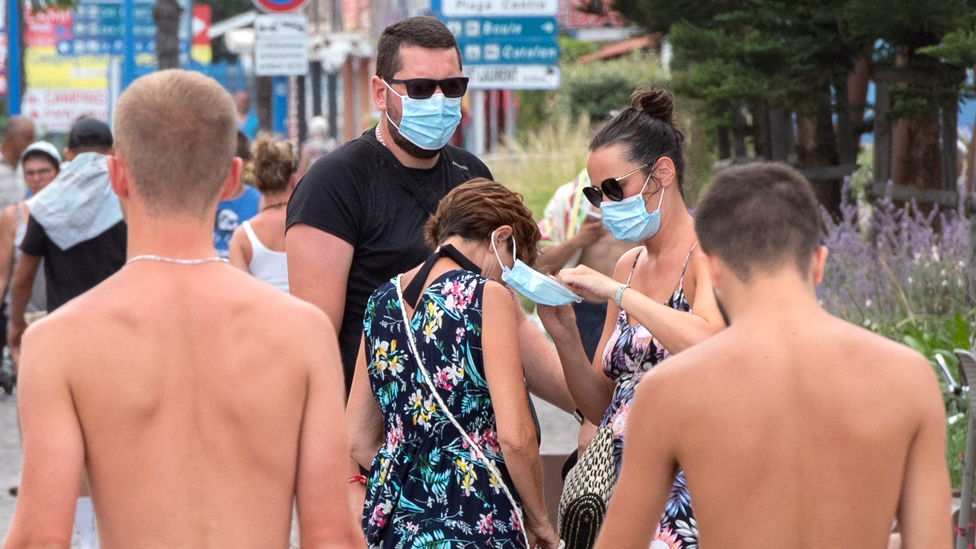
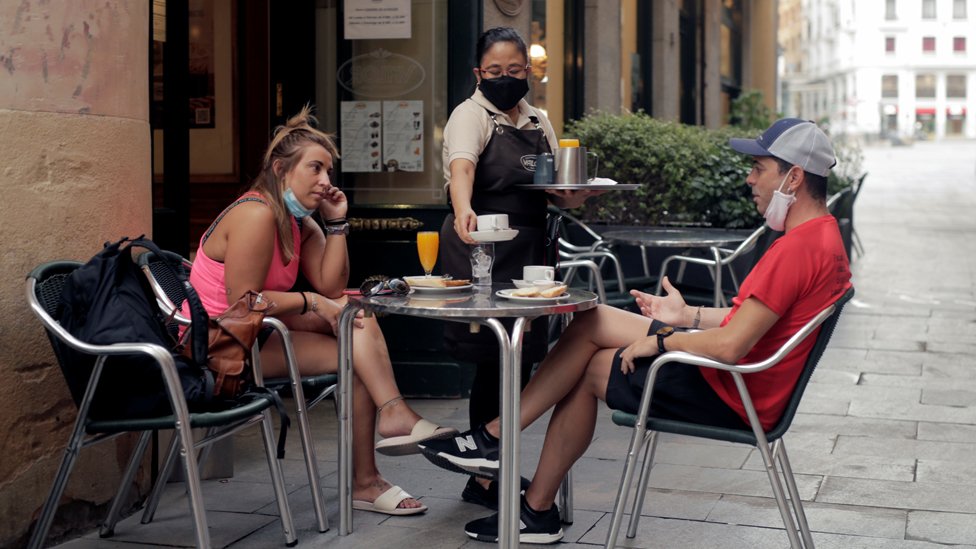
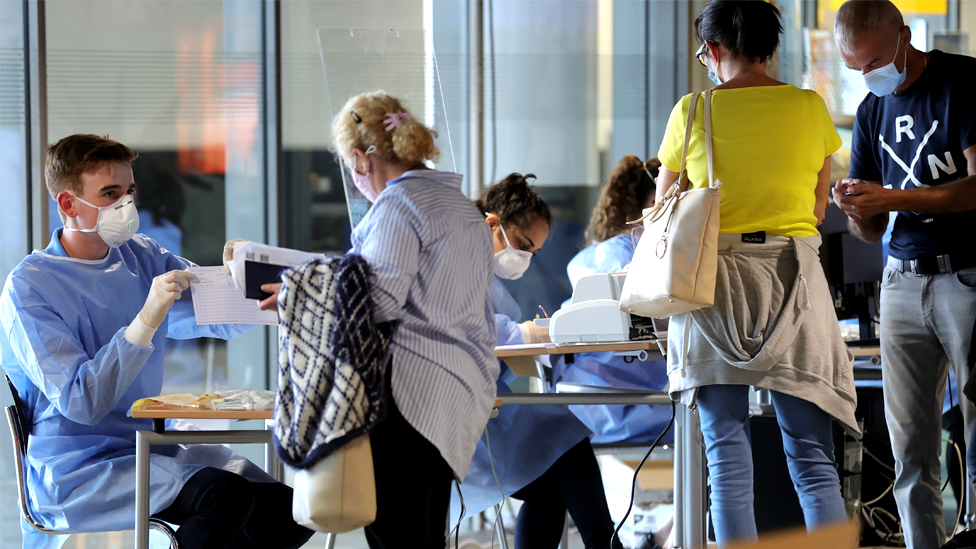
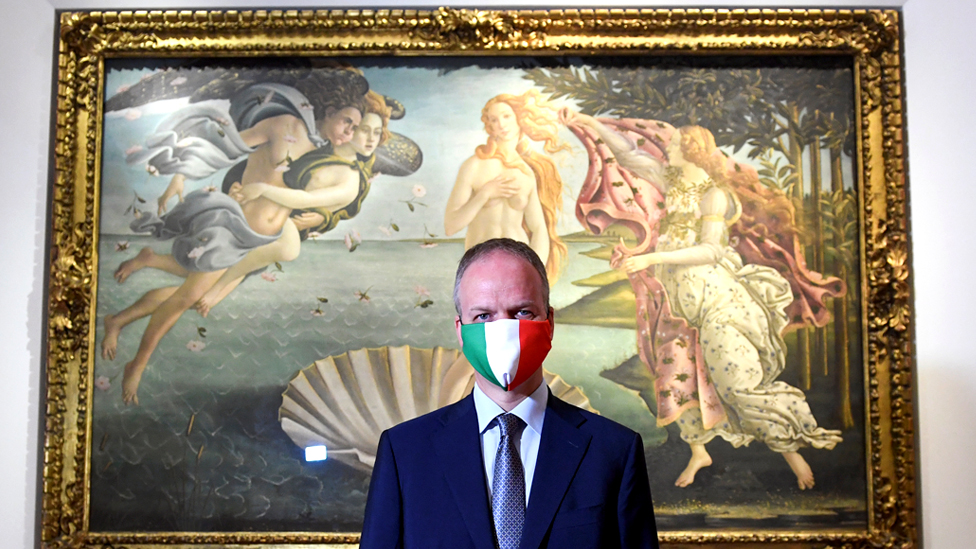
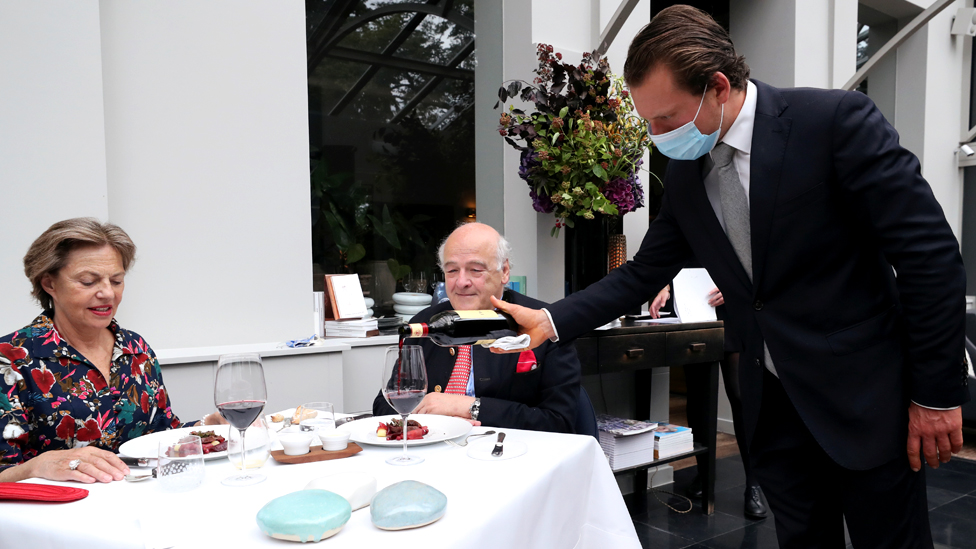
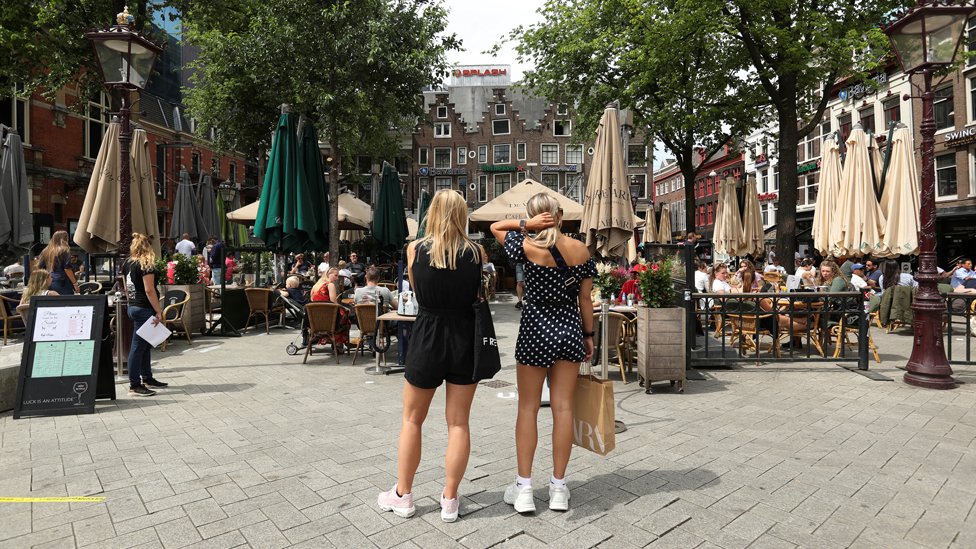
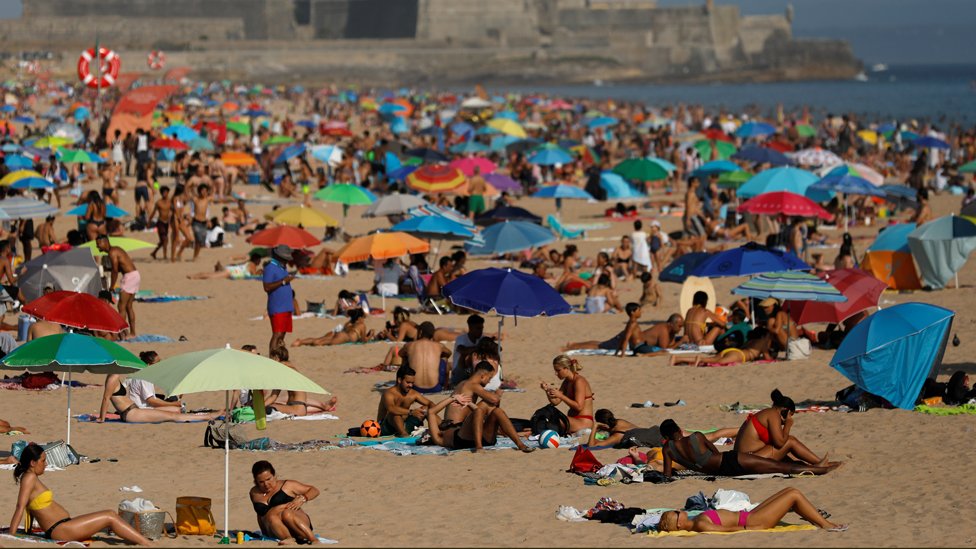
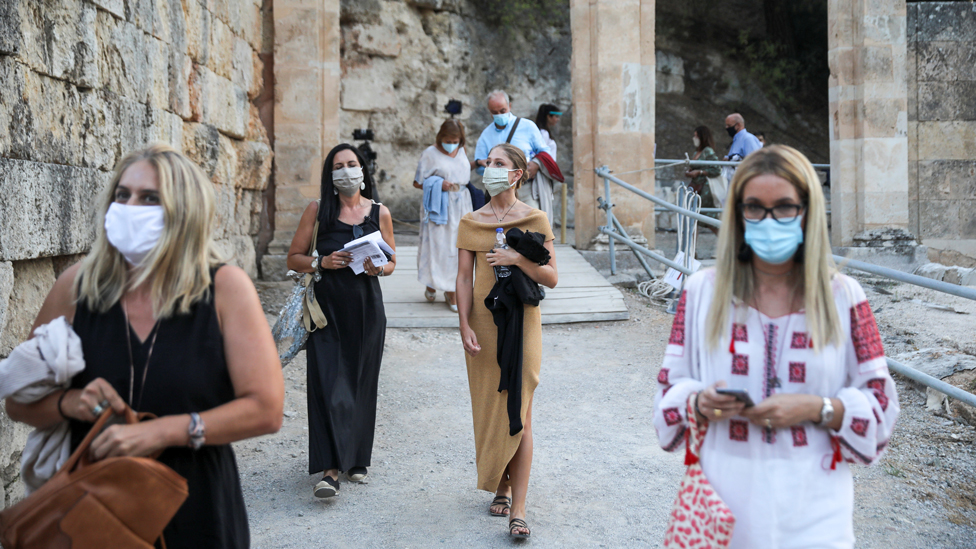
Comments
Post a Comment